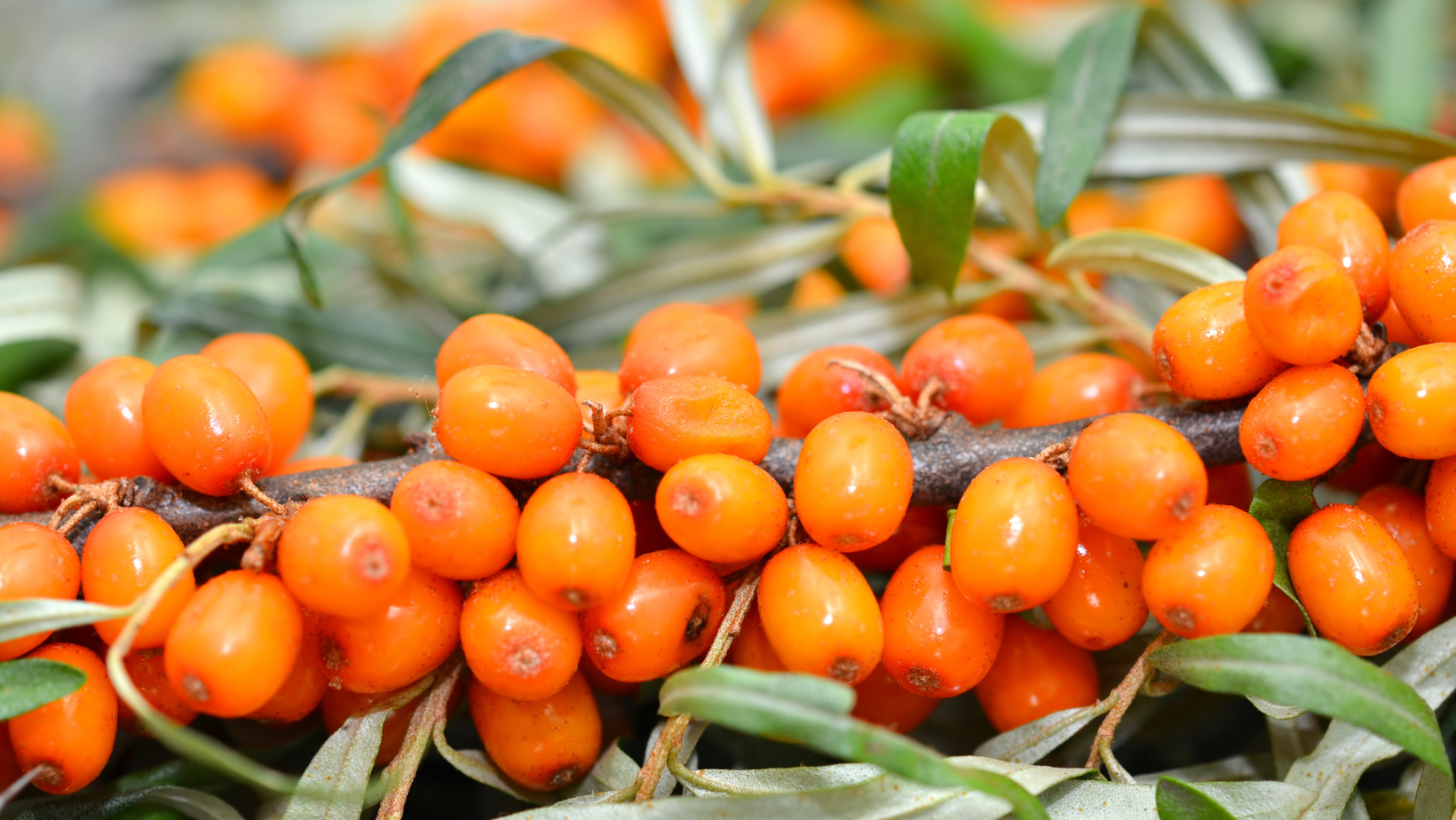The Complete Guide to Sea Buckthorn Health Benefits
Discover why Sea Buckthorn is called a superfruit and how it can boost your health

What Makes Sea Buckthorn Special?
Sea Buckthorn (Hippophae rhamnoides) isn't just another trendy superfruit. This small orange berry packs more nutritional power than most people realize, containing over 190 bioactive compounds that support everything from skin health to cardiovascular wellness.
What sets Sea Buckthorn apart from other superfruits like goji berries or acai? It's the only plant source that contains all four omega fatty acids: Omega 3, 6, 7, and 9. This complete omega profile is typically only found in fish oils, making Sea Buckthorn invaluable for vegetarians and anyone seeking plant-based nutrition.
The Science-Backed Health Benefits
1. Immune System Support & Antioxidant Power
Sea buckthorn is one of the richest natural sources of vitamin C—containing up to 10 times more than oranges—along with flavonoids, carotenoids, and polyphenols that help combat oxidative stress, strengthen immunity, and reduce inflammation. Research has shown that sea buckthorn provides exceptional antioxidant protection, with studies demonstrating its ability to neutralize free radicals and support natural immune function.1
2. Skin, Hair, and Cellular Rejuvenation
Bursting with omega-7 fatty acids, rare in plant-based foods, sea buckthorn nourishes the skin from within, promoting elasticity, hydration, and cell regeneration. It also supports hair and nail strength while protecting against premature aging. Sea buckthorn oil contains palmitoleic acid, which supports skin barrier function and promotes natural moisture retention.2
3. Heart & Metabolic Wellness
Rich in omega-3, 6, 7, and 9 fatty acids, sea buckthorn supports heart health by helping to regulate cholesterol levels, improve blood circulation, and reduce inflammation—all key factors in maintaining a healthy cardiovascular system. A systematic review and meta-analysis of 11 randomized controlled trials found that sea buckthorn supplementation significantly reduced total cholesterol, triglycerides, and LDL-cholesterol while increasing beneficial HDL-cholesterol in people with cardiovascular risks (Guo et al., 2017).3
4. Digestive & Gut Health Support
Sea buckthorn juice helps soothe the digestive tract, support gut microbiome balance, and promote smooth digestion due to its natural anti-inflammatory and prebiotic properties, making it beneficial for those with acid reflux or sensitive digestion. Traditional medicine has used sea buckthorn for centuries to support digestive wellness and promote gut health.4
Clinical Research and Evidence
Sea buckthorn's health benefits are supported by growing scientific evidence. Clinical trials have investigated its effects on various health conditions:56
- Cardiovascular health: Multiple randomized controlled trials show improvements in cholesterol profiles
- Liver function: Clinical studies in people with liver conditions show promising results
- Wound healing: Randomized trials demonstrate effectiveness for burn treatment
- Immune support: Research indicates potential benefits for immune system function
The Future of Sea Buckthorn Research
Current research continues to explore sea buckthorn's potential in supporting various aspects of health. Clinical trials are investigating its effects on metabolic health, skin conditions, and immune function. As research progresses, we're likely to discover even more applications for this remarkable superfruit.7
Ready to Experience Sea Buckthorn Benefits?
Try our premium 100% EU Organic Sea Buckthorn products, sustainably sourced and third-party tested for purity.